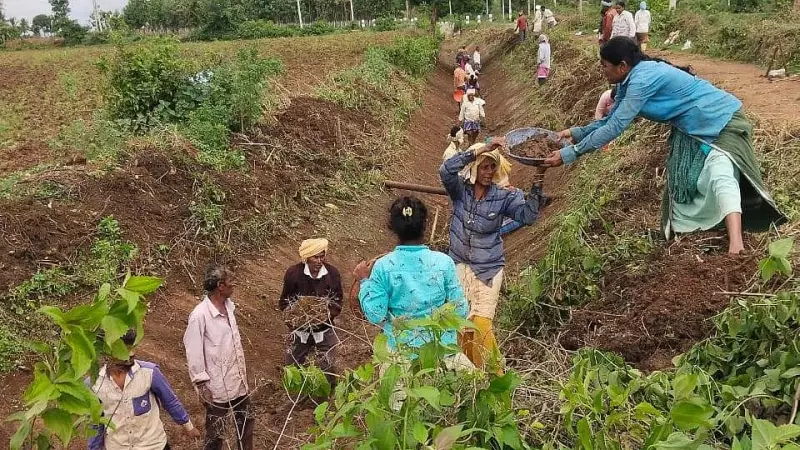
Two decades after the landmark Mahatma Gandhi National Rural Employment Guarantee Act was launched, workers in Karnataka are reporting a worrying backslide in progress. A recent 2024 study has revealed alarming gaps between the scheme's promises and its current delivery, with funding declines creating significant challenges for rural households.
Study Reveals Stark Employment Shortfall
The Performance Analysis of MGNREGA in Karnataka study, conducted in 2024, uncovered a critical shortfall in employment provision. The research found that the average days of employment provided per household stands at only half of the programme's prescribed limit of 100 days per year.
This significant gap means that rural households relying on the scheme for livelihood support are receiving substantially less work than legally guaranteed. The employment guarantee act, which completed nearly twenty years of operation, appears to be struggling to meet its fundamental commitment to rural workers.
Funding Decline Impacts Rural Workers
Workers across Karnataka have reported that the progress achieved in earlier years is now slipping away as funds continue to decline. The reduction in financial allocation has directly translated to fewer work days and delayed wage payments, creating economic stress for families dependent on the scheme.
The timing of this decline is particularly concerning given the scheme's two-decade milestone. What should be a celebration of sustained rural employment support has instead become a period of uncertainty and frustration for many workers.
Broader Implications for Rural Development
The findings from the Karnataka study highlight broader challenges facing the rural employment guarantee scheme across India. As the programme marks twenty years of operation, the gap between policy promises and ground reality appears to be widening in several states.
The situation in Karnataka serves as a critical case study for policymakers. With rural households receiving only half the guaranteed employment days, the very foundation of the employment guarantee act is being tested. The scheme's ability to continue serving as a social safety net for vulnerable populations hangs in the balance.
The study results, published on November 16, 2025, by Pavan Kumar H, provide crucial data for understanding the current state of rural employment initiatives. As Karnataka workers voice their concerns about slipping progress, the need for renewed commitment to the scheme's original objectives becomes increasingly urgent.






